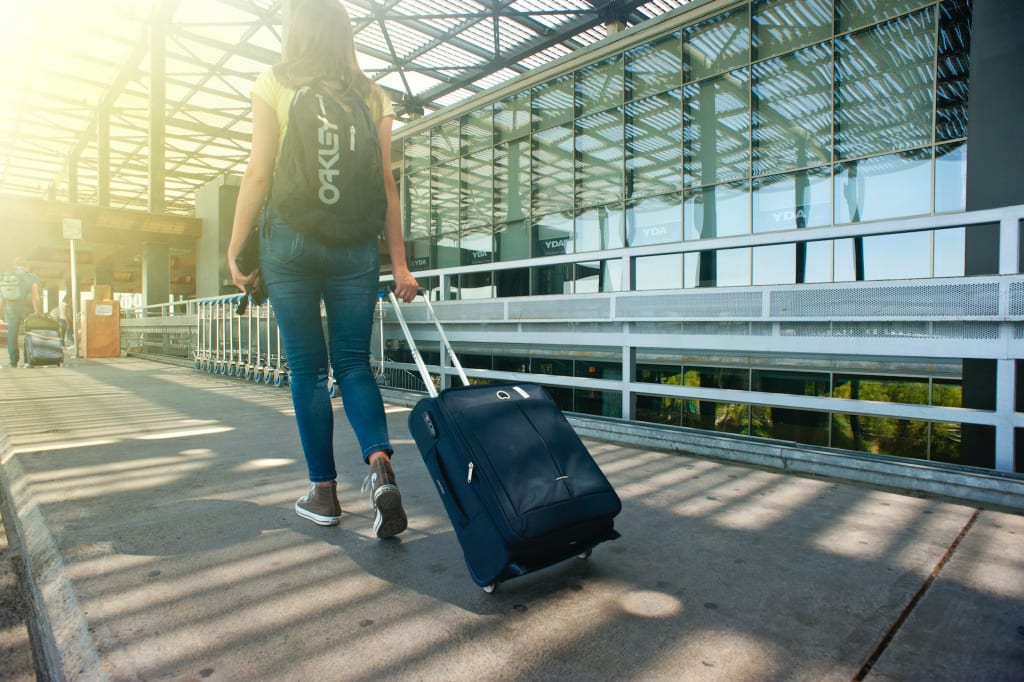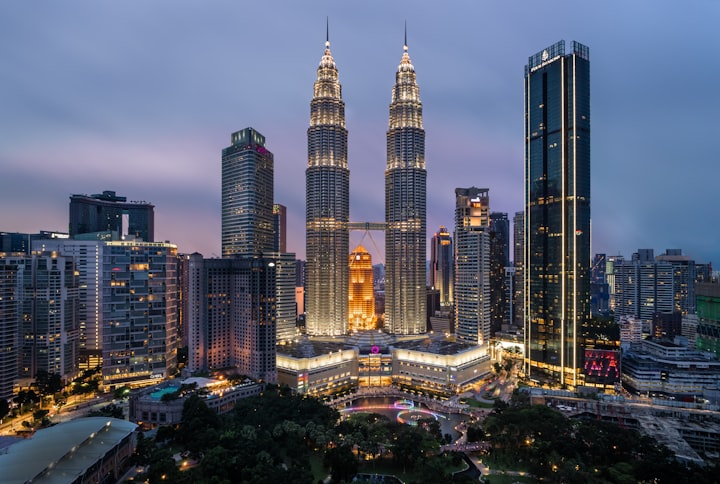How to travel a world with a perfect Plan
travel guide to the various place we like

Traveling the world can be a dream come true, but it's important to plan your trip carefully to ensure a smooth and enjoyable experience. Here are some tips for planning perfect world travel:
Set your travel goals:
Decide what you want to see and do, and make a list of the places you want to visit. This will help you prioritize and plan your itinerary.
Setting travel goals can help you plan and make the most of your trip. Here are some steps you can take to set travel goals for your trip:
Identify your interests: Think about the things you enjoy doing, such as outdoor activities, culture, food, or relaxation. This will help you narrow down the destinations that align with your interests.
Research destinations: Look into different destinations that match your interests and make a list of the places you want to visit.
Prioritize: Decide which destinations are most important to you, based on your interests and budget. This will help you create an itinerary that fits your priorities.
Set specific goals: Be specific about what you want to see and do in each destination. For example, if you're interested in outdoor activities, set a goal to hike a specific trail or climb a certain mountain.
Be realistic: Keep in mind the time and budget you have available for your trip, and set goals that are achievable within those constraints.
Leave room for flexibility: Remember that things don't always go as planned, so leave some room for unexpected events or changes in your itinerary.
Create a plan: Once you have set your travel goals, create a plan to achieve them. This may include booking flights, accommodations, and activities, and researching local transportation options.
Review and adjust: During the trip, review your goals and adjust them as needed. Be open to new experiences and unexpected opportunities that may arise.
Remember that setting travel goals is not only about ticking off a list of places and activities, it's about creating a memorable experience you will cherish for a lifetime.
Budgeting:
Decide on a budget and stick to it. Research the cost of accommodation, transportation, food, and activities.
Budgeting for an international trip can be challenging, but with proper planning and management, you can make the most of your trip while staying within your budget. Here are some tips for budgeting and spending efficiently during an international trip:
Set a budget: Determine how much you can afford to spend on your trip and create a budget that includes all of your expenses, such as flights, accommodation, transportation, food, and activities.
Research costs: Research the cost of living in the countries you'll be visiting. Look up the prices of accommodation, food, and activities so you have a better idea of what to expect.
Look for deals: Look for deals on flights, accommodation, and activities. You can also save money by traveling during the off-season or looking for deals on last-minute bookings.
Prioritize your spending: Decide which activities and experiences are most important to you, and allocate your budget accordingly. For example, if you're passionate about food, allocate more of your budget to dining out.
Use public transportation: Public transportation is often cheaper than taxis or rental cars, and it can also be a great way to see the country and meet locals.
Be mindful of currency exchange rates: monitor the exchange rates and try to pay for things in the local currency when possible, to avoid high currency conversion fees.
Be mindful of credit card fees: Using credit cards can be convenient, but check with your bank to see if there are any fees associated with using the card abroad.
Bring cash: Make sure you have some cash on hand, in case credit cards are not accepted.
Stay in budget-friendly accommodation: Look for budget-friendly accommodation options such as hostels, guesthouses, or vacation rentals.
Plan your meals: Consider cooking your own meals or eating at local markets, which can be less expensive than eating at restaurants.
Choose the right time to travel:
Consider the peak travel seasons and try to plan your trip during the shoulder seasons when prices are lower and crowds are smaller.
Choosing the right time to travel internationally can have a significant impact on your trip, affecting everything from the cost of your trip to the weather and crowds you'll encounter. Here are some tips to help you choose the best time to travel internationally:
Consider the weather: Research the weather patterns of the destination you're planning to visit. If you're planning a beach vacation, for example, you'll want to avoid the rainy season.
Check for peak seasons: Find out when the peak tourist season is for your destination, and consider traveling during the shoulder season when prices are lower and crowds are smaller.
Look for festivals and events: Research festivals and events happening in the destination you're planning to visit, and consider timing your trip around these events.
Check for school holidays: If you're traveling with children, consider school holiday schedules when planning your trip.
Be mindful of visa restrictions: Some countries require a visa for travelers, which can take several weeks or even months to process. Make sure to check visa requirements for your destination and plan accordingly.
Consider your schedule: If you're limited by work or school schedules, you may need to plan your trip around those constraints.
Overall, choosing the right time to travel internationally can be a bit tricky, but by considering the weather, peak seasons, festivals, events, school holidays, budget, visa restrictions, and your own schedule, you can plan a trip that's tailored to your needs and preferences.
Get your documents in order:
Make sure your passport is up to date, and research the visa requirements for the countries you'll be visiting.
travel documents are important for several reasons:
Identification: Travel documents, such as a passport or national ID card, are necessary for proving your identity when you're traveling internationally. They are also required for check-in at hotels, car rental agencies, and other places where you may need to show identification.
Visa requirements: Many countries require travelers to have a valid visa in order to enter the country. Travel documents such as a passport and visa are necessary for gaining entry into a foreign country.
Customs and immigration: Travel documents are used by customs and immigration officials to determine your eligibility for entry into a country. Without the proper travel documents, you may be denied entry or detained by immigration officials.
Travel insurance: Most travel insurance policies require that you have a valid passport to be eligible for coverage. Without a passport, you may not be able to file a claim if something goes wrong during your trip.
Travel itinerary: Travel documents such as flight tickets, hotel reservations, and rental car reservations are necessary for proving your travel itinerary and can be used to prove your intent to return to your home country.
Emergency contact: Travel documents such as a passport often have an emergency contact page, which can be used by authorities to contact your loved ones in case of an emergency.
In summary, travel documents are important for proving your identity, gaining entry into a
Pack smart:
Make a list of what to pack and make sure you have everything you need. Remember that you'll need to carry your luggage with you, so pack light.
Packing perfectly is important for an international trip because it can help ensure that you have all the necessary items you need while you're away, as well as help you avoid any unexpected expenses or complications.
Additionally, packing correctly can help you avoid any issues with TSA or customs, such as having to discard items or being charged additional fees. Additionally, packing smartly can also help you save space and money on baggage fees. Overall, proper planning and packing can help make your international trip more comfortable and enjoyable.
About the Creator
Emmanuel Andrew
"I am a blogger and researcher who loves to write content about adventurous experiences and knowledge to share with readers. With a passion for writing and a love of travel, I seek out fascinating new perspectives."






Comments
There are no comments for this story
Be the first to respond and start the conversation.